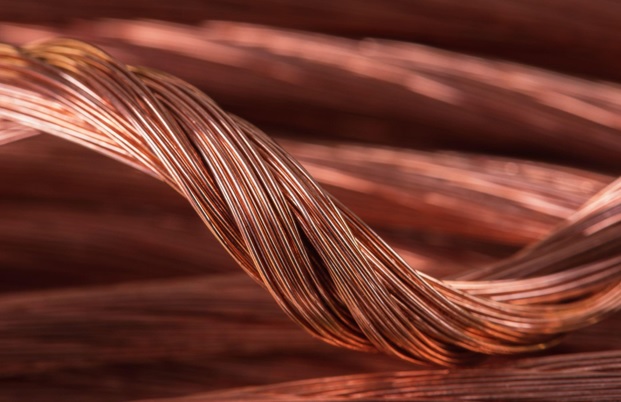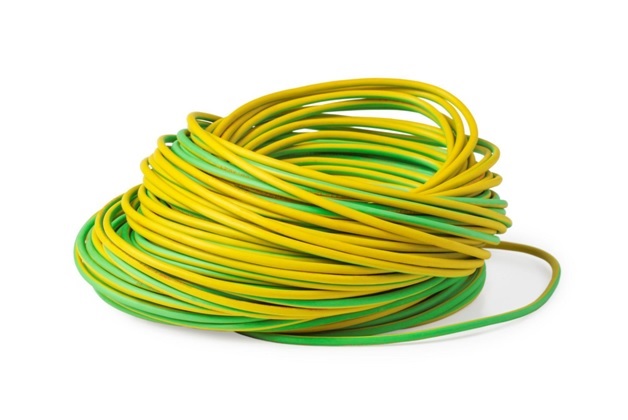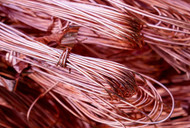Everything You Wanted to Know About Bare Copper Wire and Grounding
2nd Jul 2024
In the past, we’ve posted on the different colors of wire insulation and what they signify.
Well, what does it mean when you’re working with a wire that has no insulation - that is, bare copper wire?
It’s covered (briefly) in that previous post, but this post will unpack its purposes, what it’s used for, and why it matters, along with some other questions.
What Is Bare Copper Wire Used for?
Bare copper wire is, as the name suggests, copper wire produced without any protective, insulative jacket. It is also known as bare wire or grounding wire.
It is unrivaled in its current-carrying capacity and is made in a variety of tempers, including hard, medium-hard, and annealed (soft) ratings.
The primary use of bare copper wire is as ground wire, to intentionally ground a circuit to protect it.
What Is Grounding? Why Is It Important for Electrical Systems to be Grounded?
To put it as simply as possible, grounding is the process of connecting an electrical circuit with the earth, through the use of a conductor known as a ground wire - hence the name.
The purpose of grounding a circuit is electrical safety, to give excess electrical energy (voltage and current) a path away from the circuit where it will be absorbed by the earth (ground) in the event of a short, spike, or some other electrical anomaly.
Basically, grounding allows for “extra” energy to escape when it needs to, thereby helping to mitigate the risk of electrical shock, electrocution, and of fires that would be produced from sparks, arcing, or overheating wires.
What Happens If You Don’t Ground a Circuit?
Under normal operating conditions, nothing. The ground doesn’t do anything unless there is a surge, a spike, a short, or some other electrical anomaly.
However, if there is a spike or a surge, and the circuit isn’t properly grounded with a ground wire, then that spike or surge energy will have nowhere to go, and will have to go through the wires in the circuit.
This can cause a multitude of problems. It can fry the sensitive components in the circuit; it can overheat the lead and neutral wires, resulting in a risk of fire. It can cause sparks and arcing, also increasing the risk of fire.
It can also exceed the voltage/amperage rating of the wire and insulation, increasing the risk of electric shock to anyone too close to, or touching the wires.

Why Is Bare Wire Used for Grounding?
There are two main reasons that bare copper wire is used as ground wire. One is that bare wire has a high current-carrying capacity, as compared to insulated wire.
The other reason is that you want the current to leak away from the ground wire, especially once it gets to the ground. This allows the maximum amount of electrical energy to be dissipated into the earth.
In other words, bare copper cable and wire are more effective as ground wire because they make it easier to let the extra energy “leak” away. This is called “leakage current capacity.”
Does a Ground Wire Carry Current?
Under normal conditions, ground wire carries no current. The only time a ground wire should become hot is in the event of a spike, surge, or short, when the system grounds out and the extra current is carried away, through the ground wire. In other words, when a spike or surge occurs, the ground wire carries current - and that should be the only time.
Is Bare Copper Wire Neutral or Ground?
Bare copper wire should not be used as a neutral lead, and where there is a ground, the neutral lead and the ground wire should be separate conductors.
Also, bare copper cable and wire are sometimes used in internal computer circuitry as well as for signaling and telecommunications. Generally, however, bare wire is used as a ground.
What If There Is No Ground Wire?
Some old circuits are not grounded, and as stated, under normal operating conditions, if there is no ground wire, nothing bad happens. It has no function in a circuit unless there is an issue.
However, if there is no ground wire and a short, spike, surge or other issue occurs to the circuit, then there will be a higher risk of electrical shock or fire.
Why Is Bare Wire Not Used for Hot or Neutral Leads?
Bare wire is not used for hot or neutral leads because it is usually not insulated. Bare copper wire is particularly good at leaking current - which is something you don’t want your leads to do. A wire that leaks current is basically losing power.
Also, an uninsulated wire also presents a much higher risk of electrical shock or electrocution than one that is appropriately insulated.
In addition, black (for hot or negative leads) and white or red (for neutral or positive leads) are commonly used because it makes it easy to identify them.
Are Insulated Cables Ever Used As Ground?
Yes. Bare copper wire and cable are not the only types of electrical conductors that are commonly used as ground wire. It is also fairly common to use green or green and yellow insulated wire as a ground, because it makes it easier to identify what the use of the conductor is.

Is Bare Copper Wire Suitable for Direct Burial?
While bare copper wire is suitable for use (and preferable) as a ground, it is not suitable for direct burial. This is because there is nothing to protect the copper against corrosion, and copper that’s exposed to earth and moisture will quickly oxidize, thereby damaging its ability to work safely within its amperage and voltage ratings.
Questions About Bare Copper Cable and Wire?
EWCS Wire is proud to produce high-quality bare copper wire and cable that are specifically suitable for use in grounding applications in residential, commercial and industrial settings.
For more information on our soft-drawn bare copper single-stranded wire and multi-stranded conductors, contact us at Sales@EWCSWire.com or at 1-800-262-1598.
And, while you’re here, don’t miss out on the rest of our specialty wire and cable, including marine battery cable, highly flexible welding cable, instrumentation and alarm cable, armored cable, tray cable, and DLO cable, among others.

